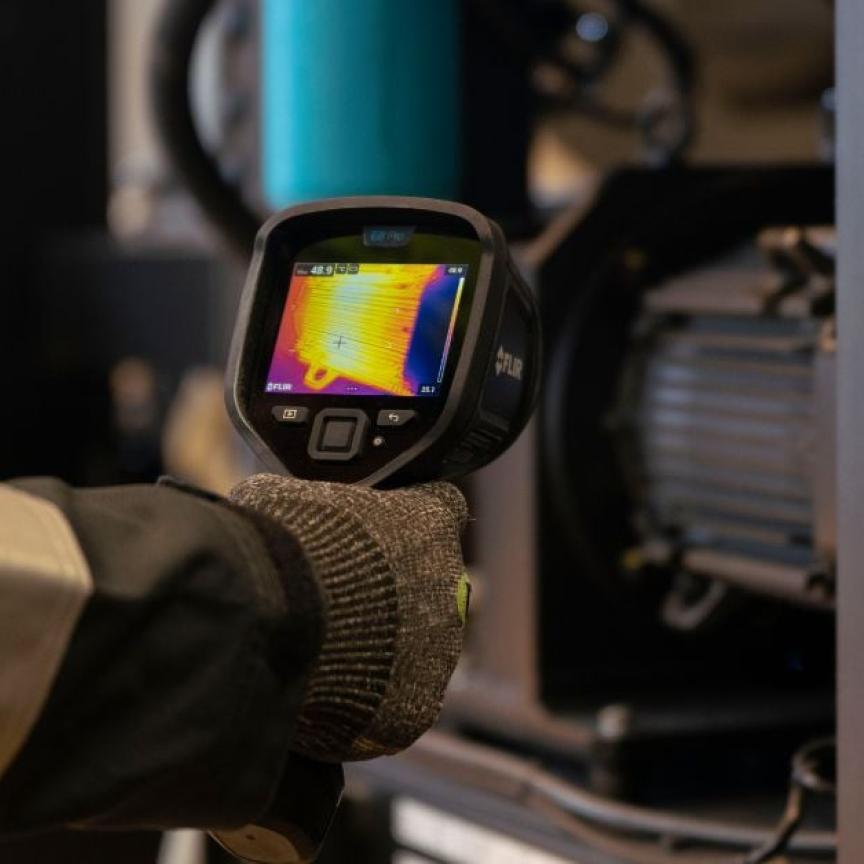Sales of thermography units increased by 426 per cent from 2019 to 2020 as the pandemic took hold, a new market report from the European Photonics Industry Consortium (EPIC) has found.
The Chinese market share of thermography cameras increased from 15 per cent to 63 per cent over that period, at the expense of US, European, and Korean market shares.
For some years, Chinese companies have been producing their own small pixel bolometers, independent from US and EU imports. The Chinese increase in market share was in spite of the fact that the largest Chinese manufacturers had been banned from a large part of the US market following the 2018 National Defence Authorisation Act, noted EPIC.
One of the symptoms of Covid-19 is an increase in body temperature. Thermal imaging cameras are now commonly used at airports and cultural events to try and spot individuals who may have Covid-19.
Despite losing market share in 2020 because of the size of the global increase, Europe increased the number of thermography units sold by 34 per cent compared with 2019. Jose Pozo, EPIC CTO, commented: ‘In the last few years we have seen a major growth by EPIC members developing IR cooled and uncooled detectors, and Covid-19 has shown the importance of this technology. We believe that Europe has some of the best technologies in SWIR and MWIR, and new applications are going to enable even further growth.’
EPIC says future market development could be influenced by three factors: firstly, whether airports, border control, big companies, city authorities, event organisers and government organisations continue with thermal control.
Secondly, whether thermal sensors or cameras will come down in price enough to be installed in mobile phones and tablets, in which case there will be a strong increase in the number of systems.
Thirdly, whether the US will continue its ban of major Chinese camera manufacturers, and whether the FDA will insist on 501(k) certification for valid thermal scanning? If so, the market will decline at least until sufficient systems have achieved 501(k) certification, EPIC predicts.


